Doruntina Basha a playwright and screenwriter from Prishtina, Kosovo. She is the author of five plays and several short screenplays. Doruntina is also the co-author of Travels to Unmikistan (2003), a Kosovar-French collaboration project, which premiered in Kosovo and was subsequently shown in France and published in a bilingual edition by “L’espace d’instant” in Paris. Her play The Finger (2011) was awarded the prize for Best Socially Engaged Contemporary Play (2011) in a competition organized by the Heartefact Fund in Belgrade, Serbia. It also won the Golden Laurel for Best Balkan Contemporary Play at the MESS International Theater Festival in Sarajevo, Bosnia and Herzegovina (2013), and the prize for Best National Play in the Flaka e Janarit theater festival in Gjilan, Kosovo (2015). It premiered at the well-known Bitef Theater in Belgrade in 2012, followed by productions in the Albanian Theater in Skopje in 2013, the Sartr Theater in Sarajevo in 2014, as part of the triptych Balkan Requiem in the Hundsturm Theater in Vienna in 2014, etc. It has been translated into Serbian, BHS (Bosnian, Croatian, and Serbian), English, French, German, Italian, and Turkish, and it has been published in the Serbia, Kosovo, USA and Turkey. She is a member of Academia Balkanica Europeana.
By Doruntina Basha
At the end of December 2012, I was traveling by bus to Belgrade. Bus journeys in the Western Balkans are always a special experience. Quite often, the villages along the highway and the parts of towns that your eye can see from the road are familiar scenes, regardless of how unknown or distant. A high degree of tolerance for dysfunctionality of the most basic elements of life is common throughout almost all the territories exhausted by war and hatred in the Western Balkans, and, in contrast to journeys that go beyond Balkan borders, in these parts this miserable relic of our life together at one time consoles the lonely travellers and makes them feel at home. Add to this some ancient buses, highways full of pot-holes and without adequate lighting, dodgy-looking roadside cafes and nationalist graffiti at the border, and the journey transforms into an agony that only ends with the dawn, as promised by the woman or man at the kiosk at the bus station: Arriving at the final stop in the centre of town. But for me this was not the first time. I’d already done the route a few times, because I had traveled that way before. Coming to and from this town started for me a few years ago, as part of some collaborative cultural projects. Nonetheless, it was the first time that I was traveling as a special guest, carrying with me a sort of solemn responsibility that made the experience of that journey even more absurd than it already was. For I had my premiere in one of the most famous theatres in Belgrade, about which I had read and heard since I was a child. It was my first play that had stepped outside of Kosova’s borders, and it was having its world premiere in a capital outside Kosova. I felt privileged. Even proud. But, at the same time, I thought: It’s very likely that there could be a confrontation with an audience that holds an entirely contrary position to mine, and I’ll have to represent myself, my little play that’s being performed, and the entire drama of my own people, with dignity. Since we’re talking about drama: My play is about the consequences of the war for the families of missing persons, and this topic, at that time, was (and continues to be today) one of the most sensitive of the post-war period in Kosova, especially because it was barely addressed (and still is not, even today). And now, I’m in this grimy bus, on these gloomy roads without any signs of hope around, and I’m going to the capital of the country that has historically denied our right to have a voice. It was as if I was leaping out of the parallel system in which I had learnt to live and work since my birth, in order to demonstrate that I had actually existed all that time, even if on the margins, in a parallel world with my voice suppressed, and I had so much to tell. I remember it as if it were today. My main concern, eating away at me on the journey, was: Is now the right time to be talking about this topic? Was I the right person? Had things settled down enough for the story I was going to tell to be heard and accepted there? The answers to all my questions and dilemmas were hidden in the evening of my premiere, which was booked for the next day.
As usual, Belgrade was welcoming. The premiere went very well. The applause went on and on. Women and men, from different generations, all wiped away their tears in public. After the premiere, I received many warm and sincere hugs from people whom I’d never seen before in my life, many of them figures of importance in the theatre world, who had come with good will to hear a story about Kosova, evidence from a parallel world. The following day, I was in almost all the important newspapers and magazines in the city. I had transformed into a sensation: The margins had spoken, it seemed it had a voice. I must say, this reaction filled me with hope. At that time, I interpreted it as evidence that it was possible for something normal to occur between us. Look: I had sent a story over there about war and survival from Kosova, and they had listened, they had accepted it and they had talked about me with the greatest kindness and understanding possible. I thought that I had achieved a sort of mission. I was so grateful to those people who’d welcomed me so warmly, with such love and without any prejudice (as I had expected, or as I had been taught to expect). Or, at least, they whispered those prejudices in a corner far away from me, far from my hearing or sight. And this whole experience convinced me that the past can be confronted while constructing together a platform that supports a genuine dialogue between individuals, artists, scientists, professionals, and all other communities, starting very simply from shared interests. And thus, gradually, something is created that could be greater, that could have a positive impact for the whole people. Very simple.
After a few days staying there, I returned home, on the same bus, and on the same difficult road. During the journey, I chewed over my thoughts: Is reconciliation essential for normal neighbourly relations? Yes, why not? In the end, I suppose if not for us, then at least for the coming generations, who shouldn’t need to get caught up in our problems. But, is reconciliation easy? From my very brief experience, it seemed like it could be. It was sufficient to go there (or for you to come here, depending on where and who you are), to tell your story, to listen to the other, and everything could change. Everything could become better. See, how simple it is.
But at that time, at the end of 2012, my euphoria following the premiere blinded me to the fact that this meeting of people, this normal conversation, had actually occurred inside a bubble in which only a tiny community existed, and no-one outside this community or outside this bubble, and thus the overwhelming majority was interested in either my play, the drama of my people, or potential reconciliation, nor the wellbeing of future generations. And I am sure that these emotions were the same in my beloved capital, which is where I was returning: My chaotic Prishtina, still disrupted from the war, and from the post-war transition and from brutal battles for power.
My story can be translated into the experience of each artist, either from Prishtina or from Belgrade, who has participated in a cultural project that has enabled them to be heard in the other capital city, and to feel accepted. The post-war years in Kosova, especially those of the first decade of the 2000s, were characterised by a rising trend of regional cultural cooperation, especially between Kosova and Serbia, or to be more precise, between Prishtina and Belgrade (and I emphasize this because it was mainly these two cities which took part in such initiatives). Usually this cooperation occurred with the financing of international organisations that had the Kosova-Serbia dialogue on their agenda, and because of their more open and independent nature they tended to focus more on artists in the theatre and visual arts, and musicians and writers of the younger generations. But this cooperation always occurred at the initiative of individuals or independent organisations, which meant that it didn’t involve the state. The primary objective of these projects was normalisation, a departure, once and for all, by both parties from the dark belief that the other party belonged in the margins, in a parallel history with their voice silenced. But regardless of this noble goal, and the fact that these initiatives produced some truly impressive creativity, these collaborations unfortunately didn’t last long and failed to bring to life the enormous task they had set themselves: Reconciliation.
The first point to note is that those initiatives depended entirely on the will of a group of individuals in Kosova and in Serbia. Individual will is not sustainable in this region of Europe, where historically the individual is not recognised as a valid entity who can be entrusted with achieving something beyond the agenda of the state or society.
Furthermore, isolating these creative and professional exchanges and gatherings within a very small community, with little power in their respective societies, ensured that although these events initially inspired hope, interest and curiousity, their good reputation soon dissipated. The initiatives were simply not sustainable, with a long life, or the potential to be repeated without external triggers. This is all entirely understandable and to some extent natural, when you consider, on the one hand, the long history of exclusion and discrimination in Kosova, exercised by the state of Serbia for decades and even continuing today, while on the other hand, there was an ever increasing scepticism among Albanians in Kosova about the potential for change in Serbia, either at the institutional or social level, and which could actually produce what the international community calls “normalization” of relations between Kosova and Serbia. The immunity of the bigger cultural institutions in Prishtina and in Belgrade from this intriguing, but sporadic exchange, created a significant gap in which a culture of antipathy toward such projects began to flourish, and which finally resulted in the polarisation of public opinion that could barely wait to paint these initiatives as tendentious, ill-intentioned, and contrary to what were considered “genuine artistic values.”
The other and more important problem which helped to undermine these initiatives was their labeling as an effort to confront the past. Confronting the past is an umbrella term which covers many of the aspects that were addressed by most regional cultural initiatives (albeit superficially), however, it was based upon a very rigid principle required to guarantee normalisation, and even reconciliation: Acceptance and recognition of the facts by both parties involved. None of the regional initiatives up to now has been able to address, let alone honour, this principle. Why? Because for such a thing to happen would require a massive mobilisation of all social classes, if not for the direct recognition of the facts, then at least to prepare the groundwork so that it took place in a spirit of genuine dialogue and mutual understanding in the near future. Besides political will, it would also need a civic initiative to stimulate a massive reform of public opinion in order to prepare people to accept the other. Usually, such a process lasts decades and moves through various phases which guarantee a strong foundation for what will come, offering a stable process that will reap the required result. Hand on heart, no society that has been steeped in conflict or in war has managed to forgive the other without passing through a similar process in which the key protagonists are the governments of the two countries, and their will should reflect the will of the majority of the people, to accept the facts about the material and spiritual damage caused by the conflict or war. Tracking the trend in relations between Kosova and Serbia, it appears that such a situation is very, very far away.
Nonetheless, it’s important to keep in mind the positives: At least the artists tried. They at least extended a hand to each other and proved that in art there is more space for understanding, acceptance and listening; they showed that they are capable of conducting a sincere dialogue, that is spontanous, without agenda and without external mediation, and which flows from the undeniable need to know each other better; a genuine, parallel dialogue for normal relations between neighbours.
Translated by Alexandra Channer

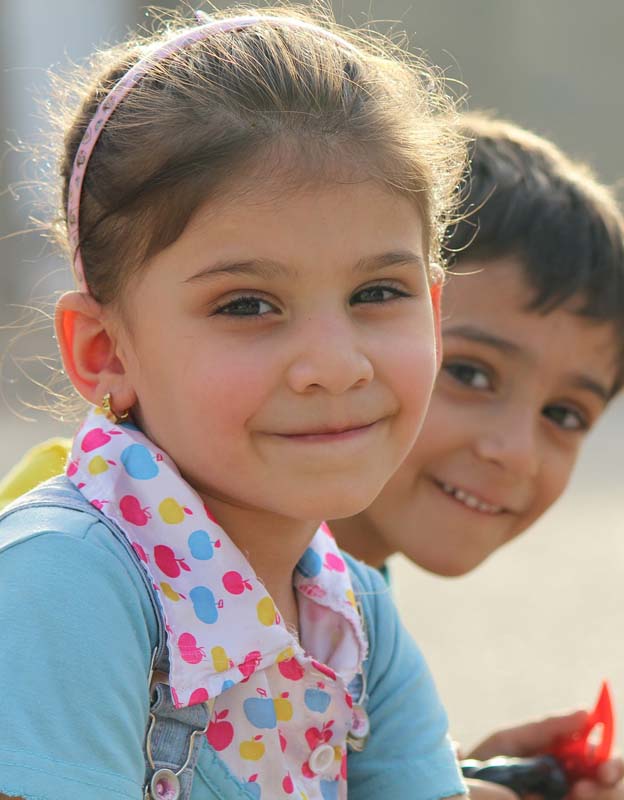

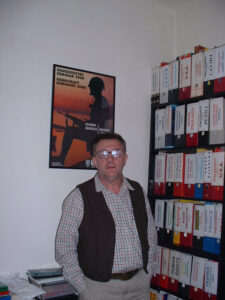
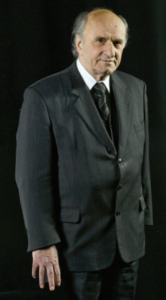
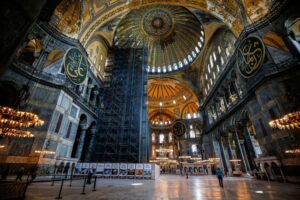

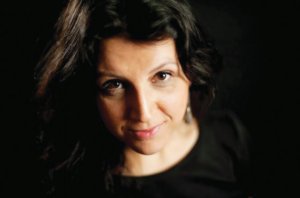
No comment